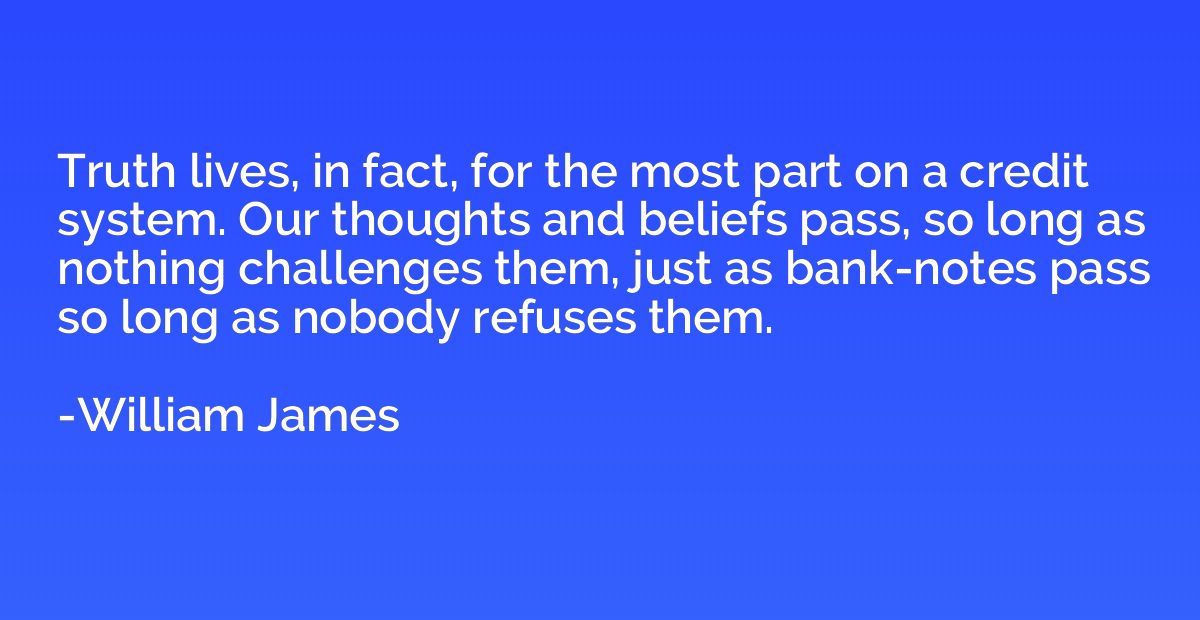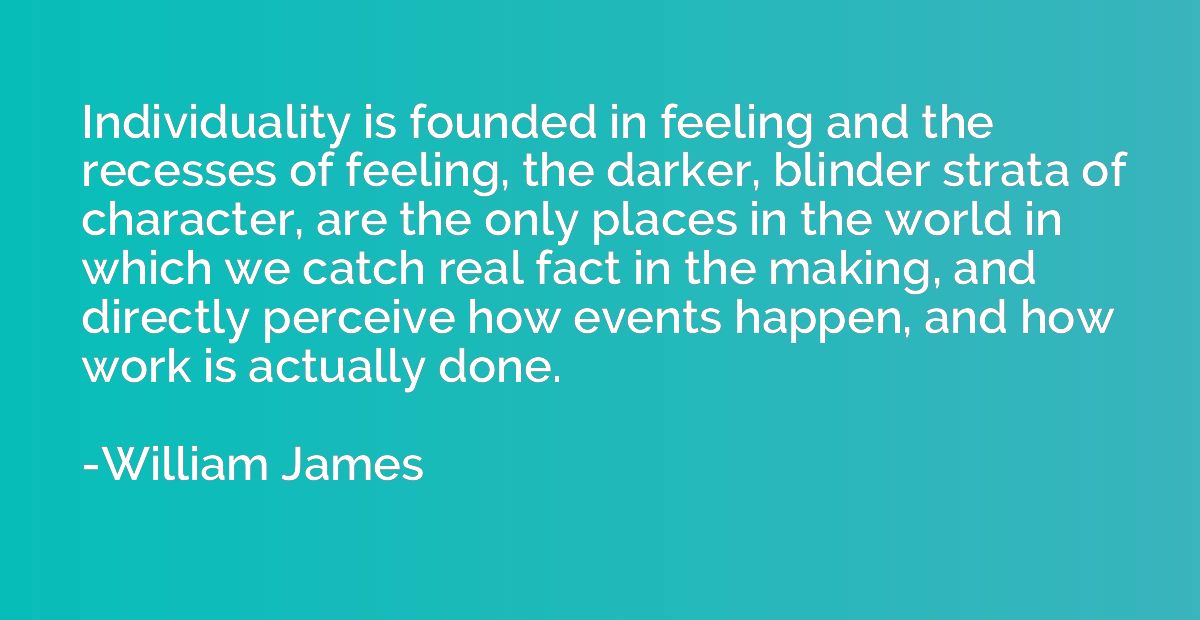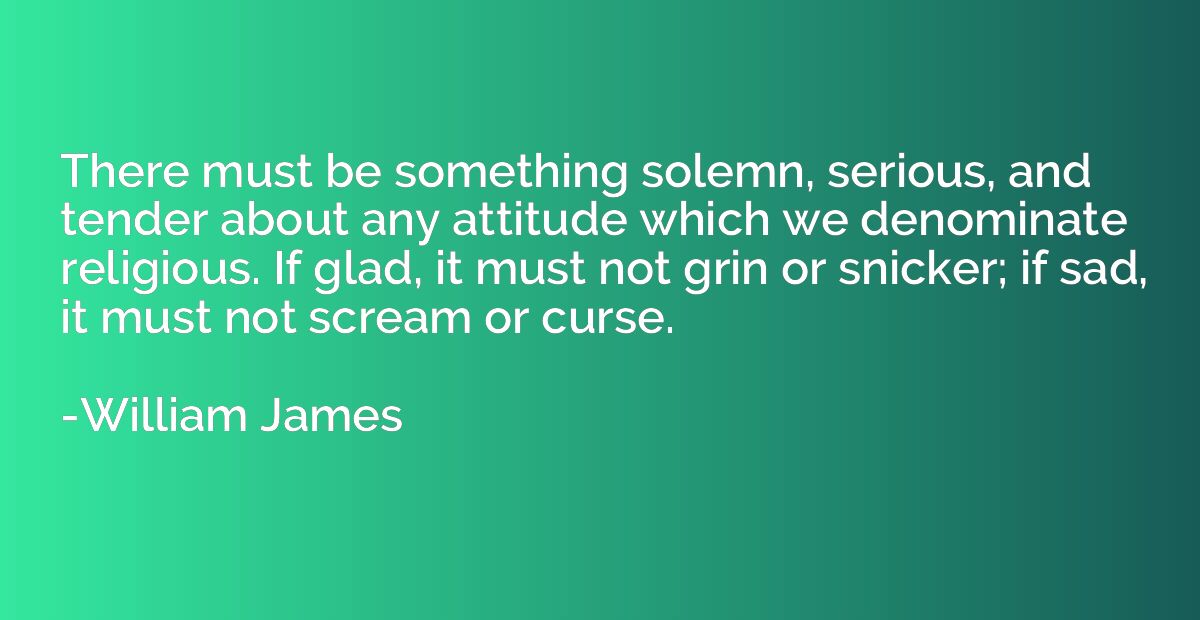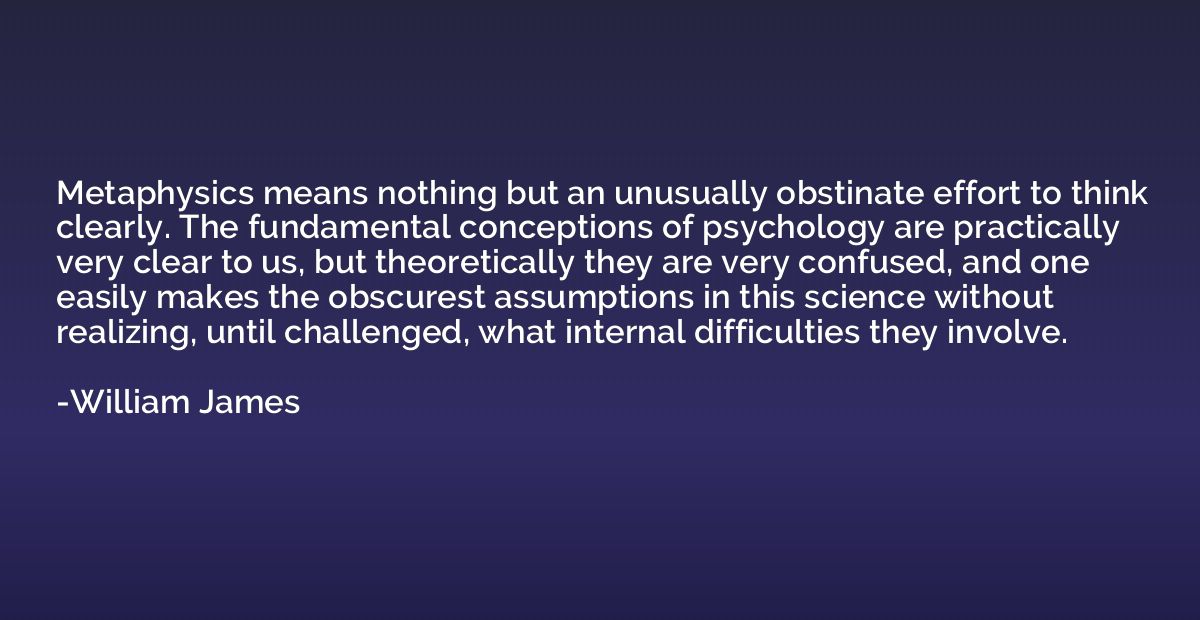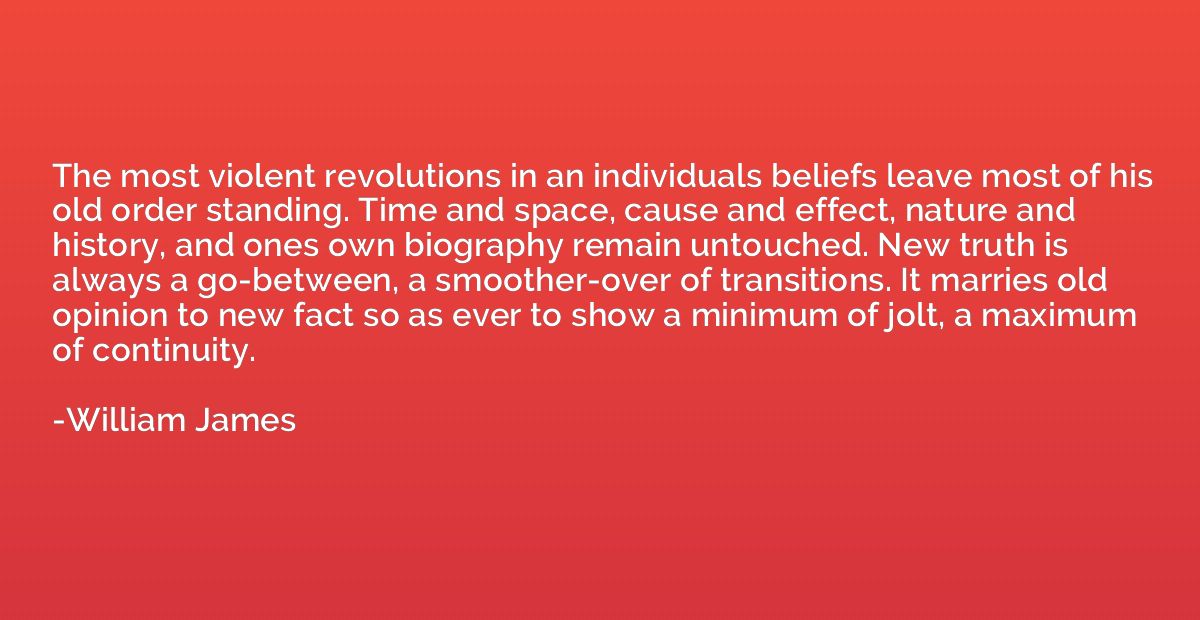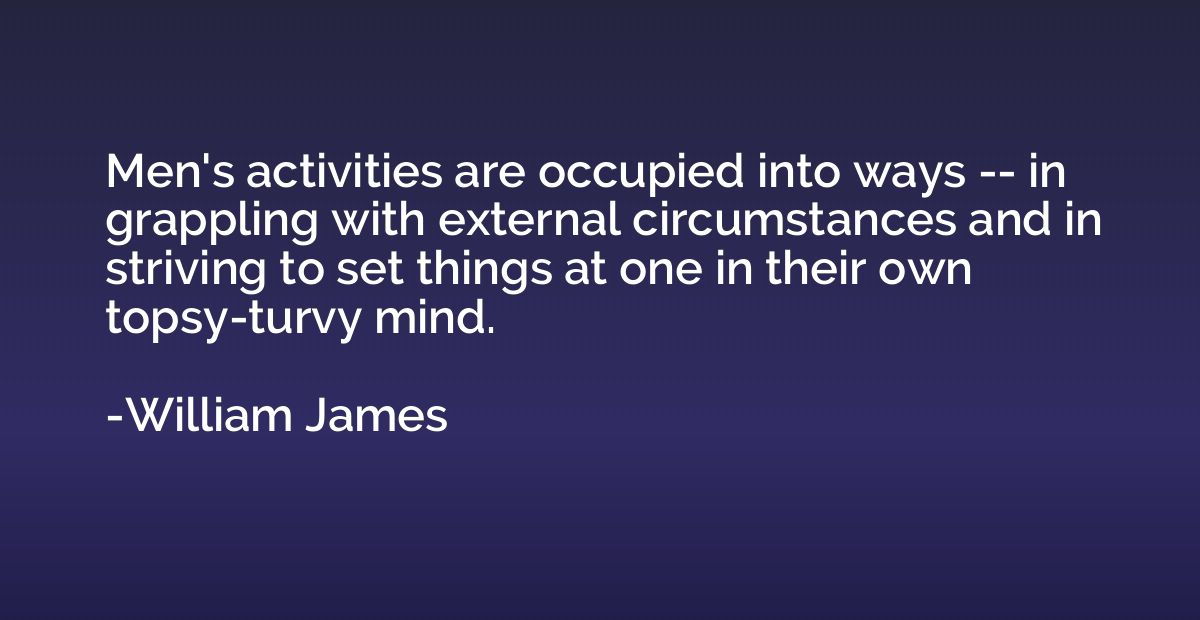William James Quotes
A collection of quotes by William James.
William James (1842-1910) was an influential American philosopher and psychologist known for his contributions to the fields of psychology, pragmatism, and philosophy of religion. Born in New York City into a prominent intellectual family, James received a diverse education and was exposed to various philosophical and religious ideas from a young age. He attended Harvard Medical School and eventually became a professor of psychology and philosophy at Harvard University.
James made significant contributions to the burgeoning field of psychology, particularly in the areas of theories of emotion and the study of consciousness. His groundbreaking work, "The Principles of Psychology," published in 1890, remains a seminal piece in the field. James emphasized the importance of studying individual experiences and their subjective qualities, diverging from the prevailing emphasis on introspection at the time.
Recognized as one of the founders of pragmatism, James advocated for a practical approach to knowledge and truth, focusing on the practical consequences of beliefs. He argued that truth should be judged based on its usefulness rather than its correspondence to an objective reality. This pragmatic perspective heavily influenced American philosophy and shaped disciplines beyond philosophy, including education and social sciences.
Additionally, James had a deep interest in philosophy of religion and explored the connections between religious experiences and psychological phenomena. His lectures on the subject were later compiled into the book "The Varieties of Religious Experience," which delves into the diverse nature of religious beliefs and the impact of religious experiences on individuals' lives.
William James's writings continue to be widely read and studied, making him one of the most significant figures in American intellectual history. His interdisciplinary approach and emphasis on the practical, subjective aspects of human experience have had a lasting impact on psychology, philosophy, and broader cultural discourse.






